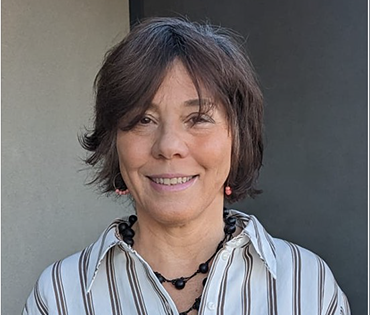School of Geography, Geology and the Environment
Research seminars
Both external and internal speakers are invited to the School of Geography, Geology and the Environment to present the latest results of their research.
Everyone is invited, so please join us!
Hypervelocity impact effects on Earth: Causes and consequences
Thursday 30 October 2025, 1.00pm, Attenborough Film Theatre
Professor John Spray, Director of the Planetary and Space Science Centre, University of New Brunswick, Canada
The impact of asteroids and comets on planetary bodies in our Solar System has contributed to planet-building and planet-modifying processes throughout geological time, and it has influenced the evolution of life itself. The formation times of impact craters are fast (typically minutes) relative to the timescales of many geological processes (typically thousands to millions of years). Hypervelocity impact can cause intense shock loading resulting in melting, vaporization and even plasma formation in target materials. Further from ground zero, shock waves cause earthquakes, and local melting and solid-state phase transformations, with the creation of new structural states and mineral polymorphs. An overview will be presented with emphasis on impact cratering on Earth and the inner planets. Approximately 200 impact structures are known on Earth, which is a shadow of its original record. This paucity of craters is due to Earth being an active planet: the majority of past impact evidence has been erased due to plate tectonics, volcanic activity, burial and erosion. Nevertheless, valuable examples have survived: we will tour some of these and explore the intriguing products of hypervelocity impact as we strive to understand these extreme processes.
Professor John Spray is the Director of the Planetary and Space Science Centre at the University of New Brunswick in Canada. He currently manages a research team focussing on investigating planetary materials, frictional melting, impact cratering mechanics, the geology of the Moon and Mars, and processes associated with hypervelocity impact and shock effects. John received his BSc in Geology from Cardiff University and his PhD in Earth Sciences from Cambridge University. He held the Canada Research Chair in Extreme Deformation and Planetary Materials from 2006-2018. He is a co-investigator on the science teams for NASA’s Mars Science Laboratory (MSL) and the ESA’s ExoMars missions. He was awarded the 2024 Barringer Medal for exceptional achievement in meteoritics.

Image caption: Bombardment of Earth 66 million years ago: the Chicxulub impact event and demise of the dinosaurs.
Learning together from Indigenous fire management in a biologically and culturally megadiverse continent
Wednesday 26 November 2025, 1.00pm, George Porter Lecture Theatre A
Professor Bibiana A. Bilbao, Professor of Environmental Studies, Simón Bolívar University, Venezuela

Under conditions of increasingly extreme climate conditions and rapid and dramatic transformations in land use, the occurrence of wildfire mega-events of great severity in Latin America and the Caribbean (LAC) has become a critical problem, affecting local communities, populations at urban-rural interfaces, wildland firefighters, ecosystem biodiversity and carbon sequestration capacity.
Extensive wildfires now affect more vulnerable ecosystems such as primary tropical rainforests and wetlands (e.g., Delta del Paraná River, Argentina). Despite costly investment in human resources and high technical deployment, dominant fire suppression policies have not been sufficiently effective to control, extinguish, and reduce the risks and impacts of the most severe and extensive wildfires increasing throughout the region. Furthermore, they have historically tended to exclude local traditional fire knowledge and practices, which allowed profuse ancient cultures to survive and preserve a highly diverse continent.
Co-developing new visions and capacities for integrated fire management instead of just fighting them requires the inclusion of multiple perspectives and actors and revitalising the knowledge and adaptive practices of Indigenous Peoples and local and traditional communities that inhabit natural spaces. In LAC, there are inspiring and promising initiatives of new paradigms for fire management policies regarding their relationships with interculturality, from which essential lessons can be learned. Challenges and barriers can be overcome through collaboration, dialogue of knowledge and participation between scientists, fire practitioners, policymakers, Indigenous Peoples and local and traditional communities, both at the regional and continental levels.
Bibiana A. Bilbao is a Professor of Environmental Studies at Simón Bolívar University (Venezuela), is a fire ecologist with more than 25 years of experience leading inter- and transdisciplinary projects integrating Indigenous, technical, and scientific knowledge into fire management policy across Latin America. Europe Award for Sustainable Development Innovation (2010) and the National Award for Best Scientific Work (2013). Co-founder of the South American Participatory and Intercultural Fire Management Network, member of the COBRA Collective (UK), and the UN Scientific Panel for the Amazon. She serves as an advisor to the Leverhulme Centre for Wildfires (UK) and the Pau Costa Foundation (Spain). Scientific Invitée at MAK’IT (2022–2023), Montpellier University (France).
Currently, she co-coordinates the WP: Intercultural Ecosystem Services and Human Well-being of the EU-FIRE-ADAPT Project (HORIZON-MSCA-2021-SE) and co-leads the “Fire and Forest Bioculture with Indigenous Peoples and Local-Traditional Communities in the Amazon” initiative under the Amazonía+ Programme, advising on biocultural fire governance for ACTO (Amazon Cooperation Treaty Organisation) countries.
